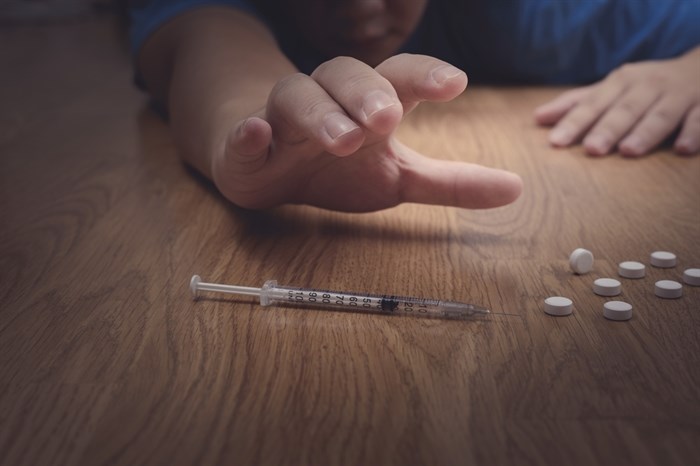
Image Credit: Shutterstock
November 23, 2016 - 1:45 PM
PENTICTON - A recent spike in overdoses in Penticton is alarming, but the city still has ways to go before reaching levels seen in other Okanagan communities, according to an Interior Health Authority official.
Chief medical health officer Dr. Trevor Corneil says they have been tracking the number of overdoses in the Penticton region since June, and has seen between one to four overdose reports monthly from Penticton Regional Hospital’s emergency ward and two deaths.
“Penticton hasn’t been a hot spot for overdoses when compared to Kelowna, Vernon and Kamloops,” he says.
Penticton RCMP reported yesterday, Nov. 22, a noticeable spike in overdose calls over the past two weeks, including the death 43-year-old Penticton woman.
Last week Interior Health received eight reports of overdoses in Penticton, not including the death.
“We get our information about overdose deaths through the B.C. Coroners office,” Corneil says, adding the recent death may not have caught up to them yet.
As far as reasons for the recent increase in overdoses in the city, Corneil says there hasn’t been anything unusual regarding testing of illicit substances seized by the RCMP that is noticeably different than before, noting opiates and fentanyl had been seen in some drug busts conducted by the RCMP, and more recently cocaine.
“Fentanyl is part of the mix, but we haven’t seen anything at this point that would point to a cause in the spike,” he says. Overdose spikes do occur in cities from time to time, the causes of which are seldom discovered.
Interior Health is working with emergency departments, community agencies, and the RCMP to find out more about what is behind the recent spike.
Corneil cautions drug users against mixing drugs, urging those that insist on using them not to use alone, and to have a naloxone kit handy. Naloxone can reverse an opioid overdose.
“Learn to recognize the signs of overdose, which includes slower breathing, turning blue and being hard to rouse,” he says, adding calling 911 is still the best option.
To contact a reporter for this story, email Steve Arstad or call 250-488-3065 or email the editor. You can also submit photos, videos or news tips to the newsroom and be entered to win a monthly prize draw.
We welcome your comments and opinions on our stories but play nice. We won't censor or delete comments unless they contain off-topic statements or links, unnecessary vulgarity, false facts, spam or obviously fake profiles. If you have any concerns about what you see in comments, email the editor in the link above.
News from © iNFOnews, 2016